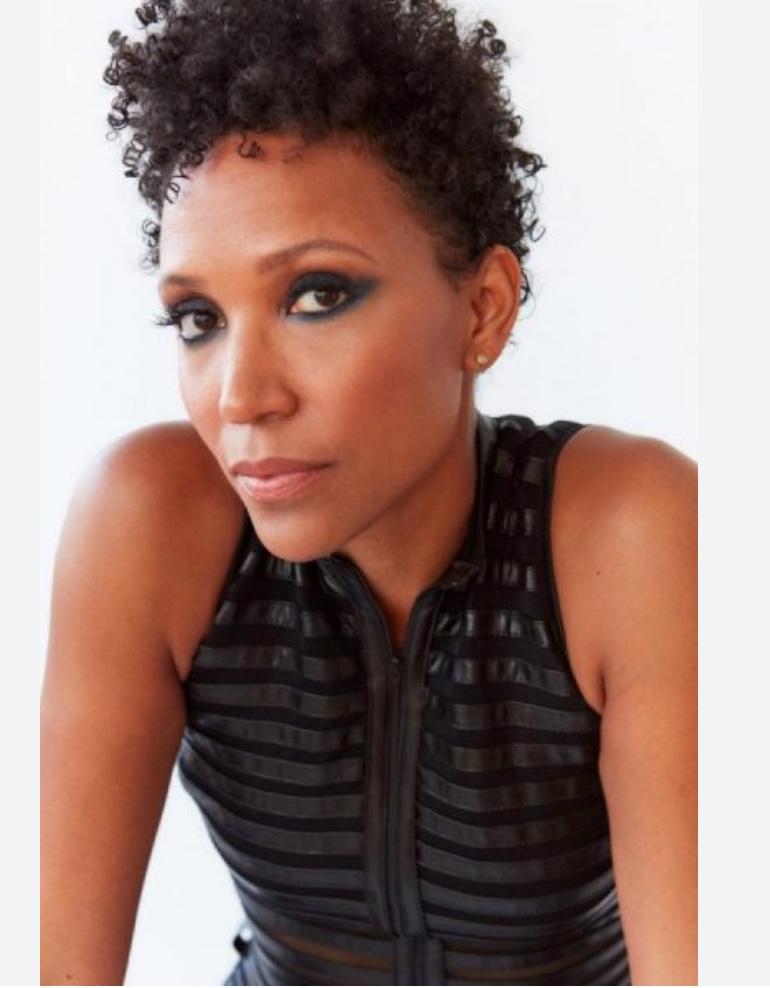by Kevin McLaughlin

Loggins-Hull periodically provided notes about the program. She is an elegant and compelling presence onstage, and a passionate spokesperson on behalf of her music as well as that of her fellow composers — notably through the lens of social justice.
Transcribed by the composer from her 2014 violin work, Jessie Montgomery’s Rhapsody No. 1 for solo viola felt like a slice of American fiddle tradition, enhanced by Eliesha Nelson’s sympathetic and sonorous performance. A plaintive six-note melody begins its journey, first in double stopped dialogue with itself, then as isolated accents over furious arpeggiation, before ending largely as it began.
Nelson was then joined by violinists Wei-Fang Gu and Jeffrey Zehngut and cellist David Alan Harrell for Florence Price’s folk-tinged Andante moderato, from her String Quartet in G, written in 1929 while the composer was living in Chicago. As a musician flourishing at the height of Romanticism, it is natural that Price’s musical language reflects those around her — Dvořák, MacDowell, and even Puccini. The Cleveland Orchestra players did not shy from this stylistic elbow-rubbing, nor from evoking a general sense of nostalgia. The middle section, Allegretto, with its tricky shifts of tempo and timbre, was played as if the group had rehearsed together for years.
Next, the quartet turned their attention to Carlos Simon’s Warmth from Other Suns, inspired by Isabel Wilkerson’s book of the same title about the mass exodus of African Americans from Jim Crow-plagued Southern states settling in the North. Frozen harmonics, receding echoes, restless harmonies — all were eloquent, though unhappy, evocations of the migrant’s plight.
Loggins-Hull’s Homeland for solo flute, performed by the composer, was a moving meditation on the unstable meaning of home, “in the aftermath of natural disasters and social upheaval.”
Though we were only given a taste of Samuel Coleridge-Taylor’s Clarinet Quintet, written in 1895 when he was just 20 (he died at age 37), the Allegro energico movement reveals him to be a mature composer. Like Florence Price, Coleridge-Taylor has one ear on Dvořák when it comes to folk-intuited melodies and an earnest interplay between the instruments. Daniel McKelway proved a sensitive soloist and chamber partner with his colleagues Sonja Braaten Molloy and Beth Woodside (violins), Gareth Zehngut (viola), and David Alan Harrell (cello).
Howard Swanson studied piano at the Cleveland Institute of Music beginning in 1930, and later composition in Paris with Nadia Boulanger. His attractive Suite for Cello and Piano, written in 1949, is true to his inclination toward the conventional. Cellist David Alan Harrell crooned in the Prelude movement, and Daniel Overly was a faithful collaborator.
In an unflinching introduction to her own The Pattern, Allison Loggins-Hull recounted ways in which white supremacy has, very intentionally, created roadblocks against progress for African Americans. Elsewhere, she has suggested the piece serves as a case for reparations for the African American community. The ensemble — Joshua Smith (flute), Amy Zoloto (clarinet), Jessica Lee (violin), Charles Bernard (cello), Thomas Sherwood (percussion), and Daniel Overly (piano) — gave a fiery account. Early moments of hope, established by vibraphone and piano with liberated-sounding winds, give way to a sense of despair that history will repeat itself, with Smith discharging a particularly frenzied and exhausting cadenza.
Published on ClevelandClassical.com May 23, 2023.
Click here for a printable copy of this article



